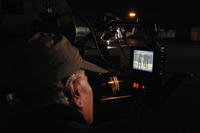A task force convened by the prestigious Council on Foreign Relations warns that the current Afghan strategy may not succeed and questions "whether U.S. interests warrant such an investment." We are, the group argues, "at a critical point."
The 112-page report is clearly intended to influence the White House's review of Afghan strategy that is due next month. A declassified version of the White House assessment's conclusions should be out around the end of the year. The Council on Foreign Relations panel was led by former Richard Armitage, former deputy secretary of State under President Bush, and Sandy Berger, President Clinton's former national security advisor.
The report, while noting some achievements such as training Afghan security forces, focuses on whether the current, ambitious strategy is worth the cost of national treasure and can succeed in the face of familiar problems such as corruption and incompetence that face the Afghan and Pakistani governments.
Here is the core of the report's argument:
"In Pakistan, a weak civilian government is struggling to cope with a plethora of challenges exacerbated by this summer’s floods. The military has lost more than two thousand men in an ongoing battle with insurgents in the country’s northwest. But the army does not fight all militants equally. Islamabad’s ongoing tolerance of—and even support for— extremist groups that target American interests in Afghanistan and globally calls into question the basis of the U.S. relationship with Pakistan.
"In Afghanistan, the Taliban insurgency is more violent than at any point since the U.S. invasion after 9/11. NATO forces are paying a
heavy toll. Afghan public enthusiasm for the government is waning after years of unmet expectations. The economy, devastated by more
than thirty years of war, has not recovered sufficiently to provide for the people, while the government remains largely ineffective and riven by corruption."
One way out of the current situation may be achieved by shifting "a greater burden to Afghan partners." This would require "an initiative with three complementary elements: political reform, national reconciliation, and regional diplomacy."
But the task force also warns that diminishing US participation could greatly complicate any chance for reining in the Taliban and some of its friends like the deadly Haqqani network.
One of the most interesting tidbits in the report is its warning that Lashkar-e-Taiba (LeT), who launched the terrorist attack on Mumbai, India, "could eventually surpass al-Qaeda as the world’s most sophisticated and dangerous terrorist organization." Part of the reason for the panel's assessment is that LeT has actively and successfully sought American recruits for its operations.
The top recommendation of the task force is that the US must bolster Pakistan's response to the horrific flooding that beset that country. Next comes approval of a preferential textile agreement with Pakistan. "This agreement would help revive a devastated Pakistani
industry and all of the associated sectors of the economy, including Pakistan-grown cotton," the authors say.
In light of all the above, bear in mind that a senior White House official told reporters on Tuesday that its review would judge how well or badly the current strategy is faring but will not offer new strategic choices.








